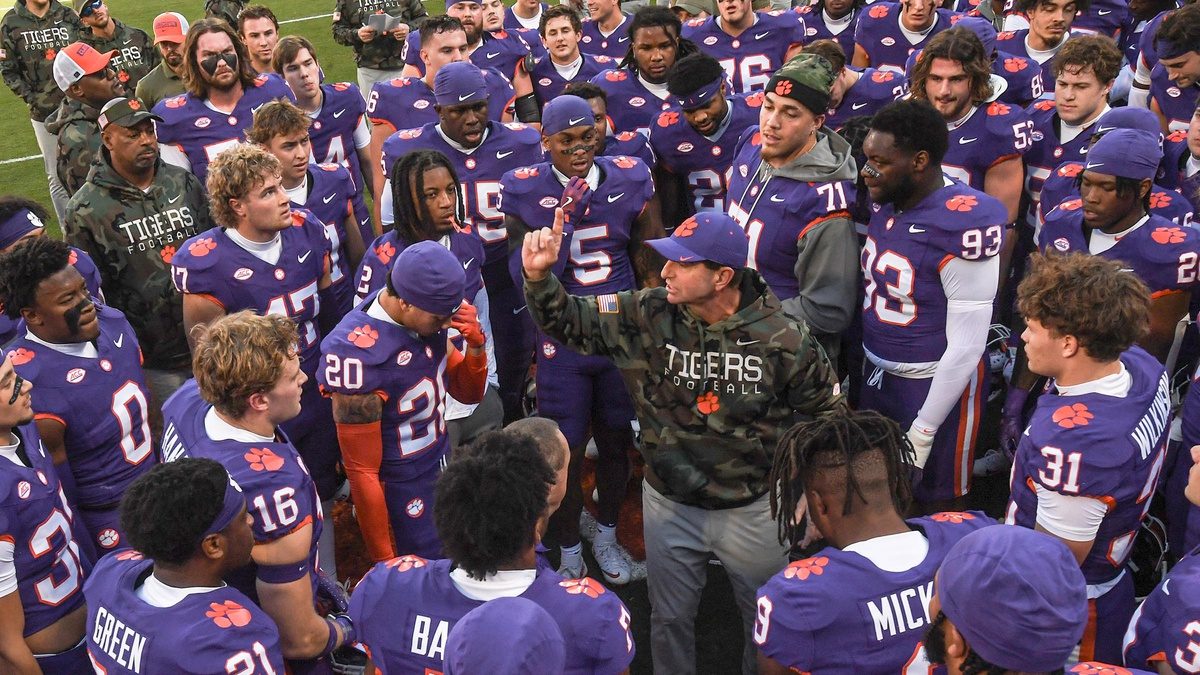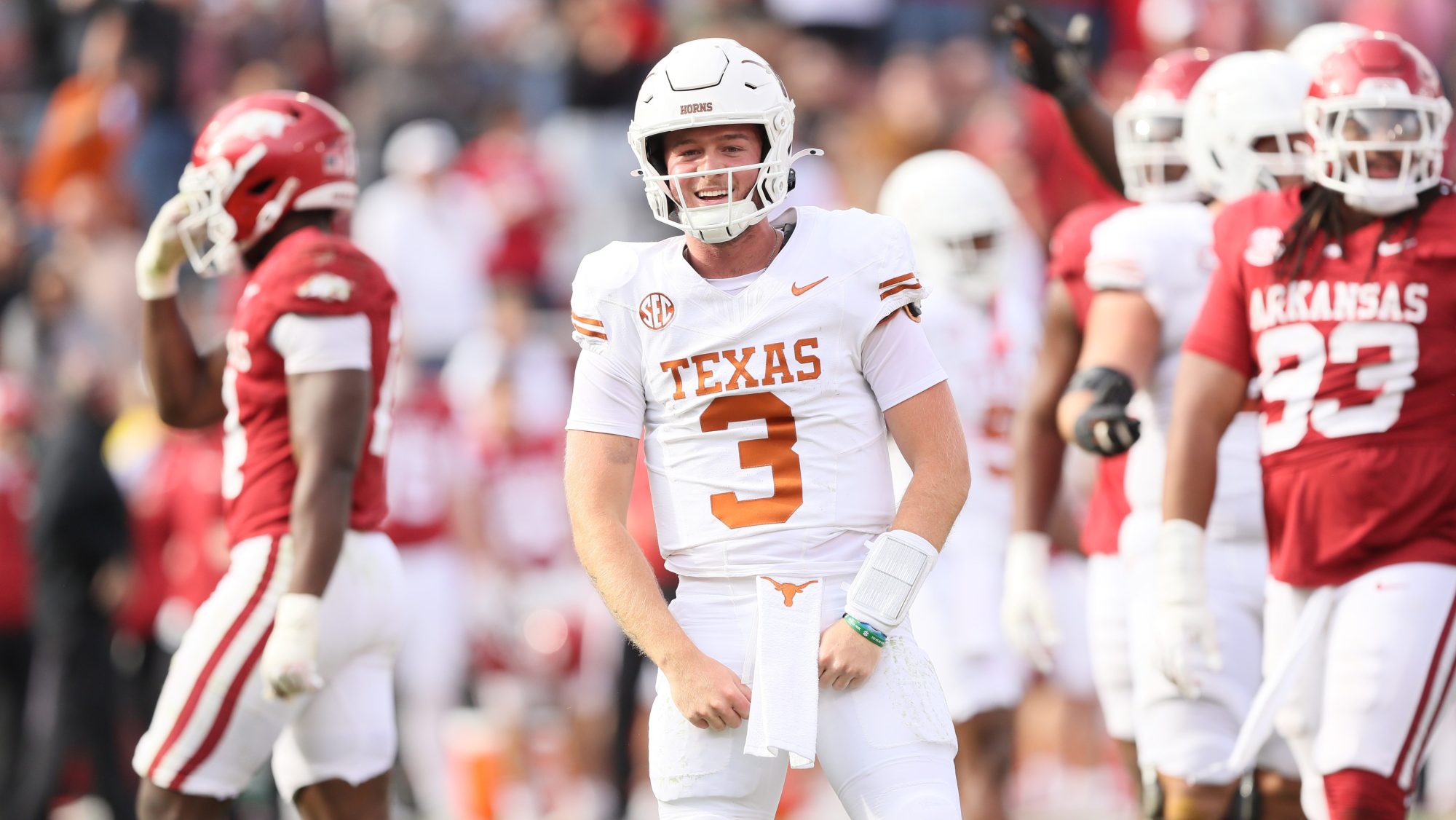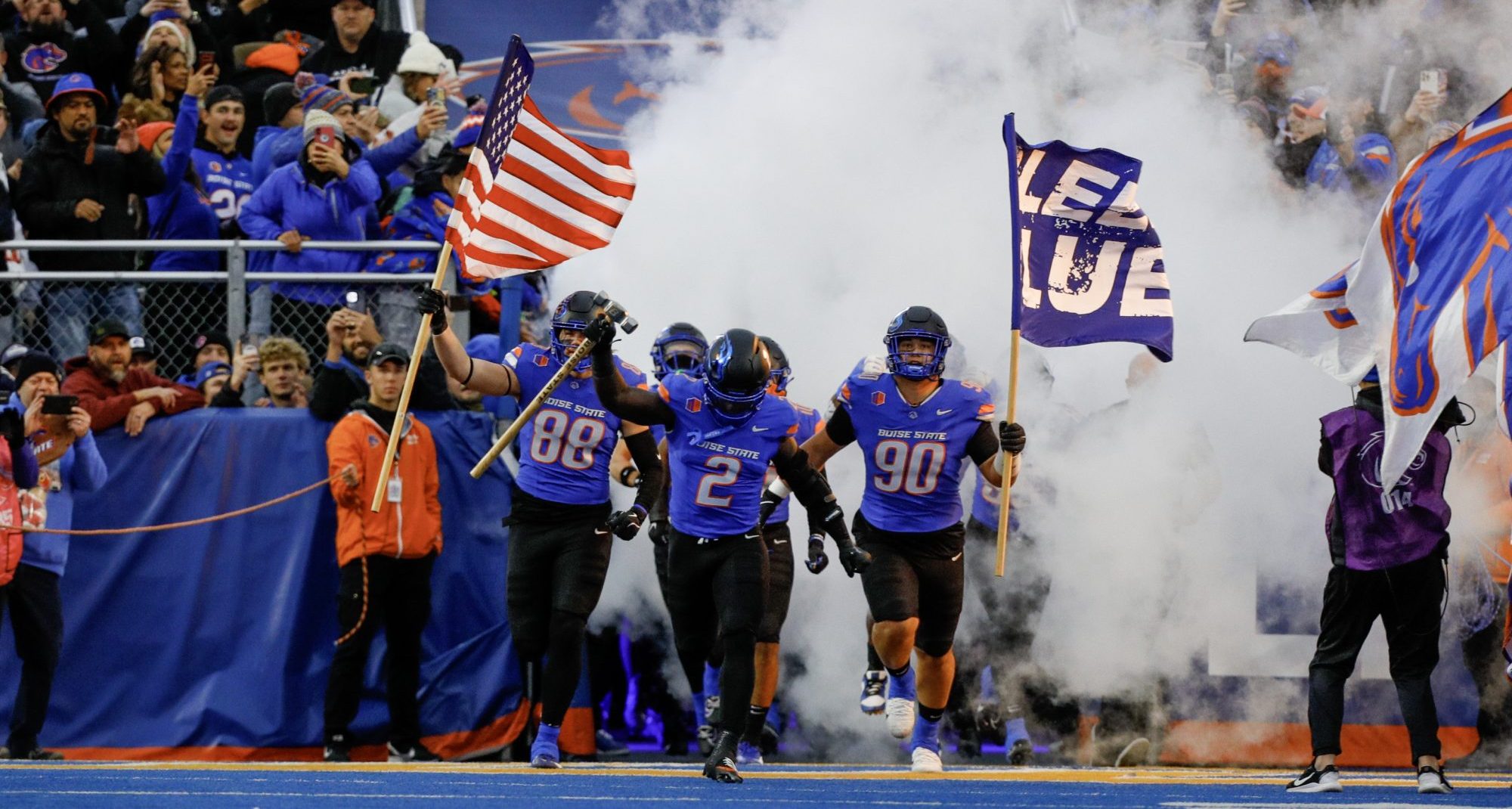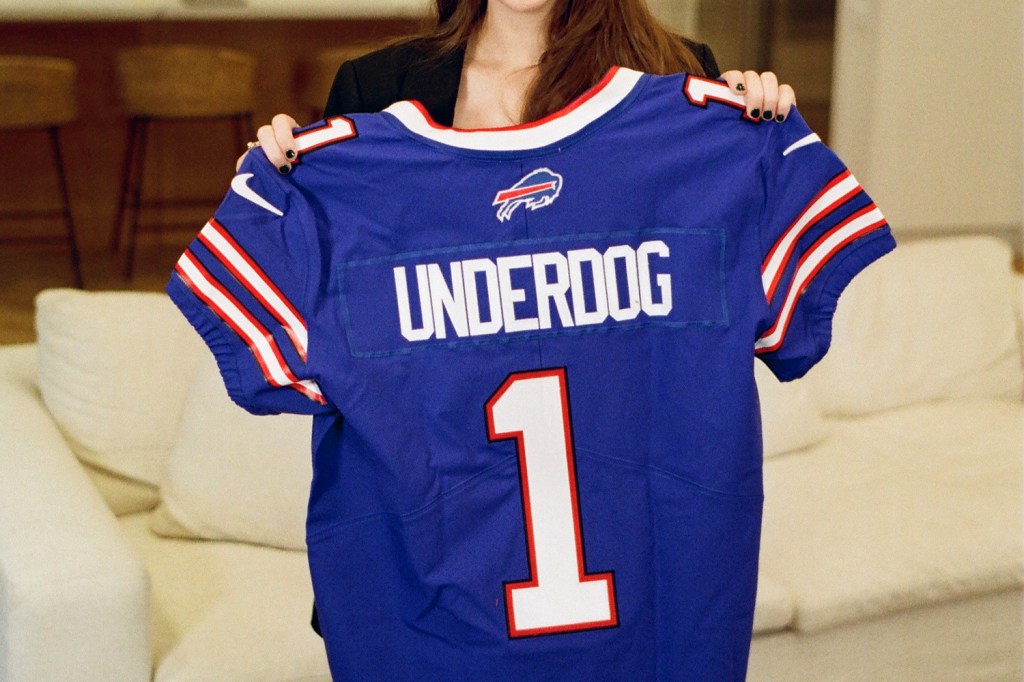At the end of October, the NCAA distributed a two-and-a-half page “question and answer” to Division I schools about an upcoming policy. Despite the massive implications, it was remarkably brief. The document outlined details of the landmark House v. NCAA settlement proposal, which would allow D-I schools to pay college athletes for the first time in history.
If the proposal is finalized in April, each school could begin sharing between $20 million and $30 million in revenue with players as early as July 1, 2025. Schools aren’t required to participate—but if they do, they have to provide revenue-sharing dollars to all the athletes in their departments. Meanwhile, with some new regulations, athletes will continue to rake in money from NIL (name, image, and likeness) deals.
But less than a year away, schools haven’t received much guidance on how to implement revenue-sharing, several administrators at D-I schools and conferences nationwide have told Front Office Sports.
The NCAA wrote that more “comprehensive” info is coming, and it has set up an email address where administrators can send questions. Conferences have held meetings with schools to share information, parse out confusing details, set new guidelines, and discuss revenue-generation options. But ultimately, athletic departments are about to be thrust into a new era with little, if any, assistance. Still reeling three years after massive changes to NIL and transfer portal rules, they’re now scrambling to figure out how to pay thousands of athletes across college sports.
Some schools are trying to get out ahead of the settlement by hiring new employees, purchasing new software, and searching for new ways to make money. But it’s not like they have a playbook for this type of massive transition.
“My understanding,” Boise State athletic director Jeramiah Dickey tells FOS, “is that everyone’s kind of on their own.”
Boise State, whose football team is slated to secure a spot in the new 12-team College Football Playoff, has already proved it’s not afraid of the professionalization of college sports. The department was one of the early pioneers of the “NIL director” position, and the former employee who held that position, Michael Walsh, penned what was believed to be the first promotion-relegation model in college football.
When it comes to revenue-sharing, “it wasn’t a question of if, but when,” Dickey says.
In October, it announced it’d participate in revenue-sharing, and then unveiled a new sub-department. The group, dubbed “BroncoPRO,” which will be part of the Boise State University Foundation, will be tasked with salary-cap management, negotiations, scouting, and managing payments. The athletic department’s existing in-house NIL agency will move over to become part of BroncoPRO.
The Broncos’ plan is particularly impressive given that the school doesn’t rake in power-conference media dollars (Boise State is jumping from the Mountain West to the Pac-12 in 2026). But it’s setting itself up to compete with much wealthier programs. Clemson, for example, sent a letter to fans Tuesday saying it would create a similar “front office” to Boise State—though its group of employees will be under the athletic department’s umbrella rather than the foundation. The unit, which will be in charge of athlete contracts, compliance, and cap management, will solicit expertise from pro sports.

Not every program is building a whole new department yet. In mid-October, the University of Minnesota published a job listing for a “House Settlement Negotiator, Quantitative Analysis & Contract Manager.” The employee will be tasked with managing the distribution of revenue-sharing across the department, as well as negotiating payments for certain teams’ recruits. One of the preferred requirements: “previous experience working with a professional sport organization’s salary cap.”
And in other programs, existing athletic department employees will be tasked with the House settlement rollout. At UCLA, the head of the NIL department is currently in charge of organizing the revenue-sharing process, assistant director of NIL Maddie Walsh told FOS in October.
The University of Arizona is believed to be one of the first schools to issue revenue-sharing contracts to recruits, according to Yahoo Sports. The athletic department’s existing administrators considered 26 different models for revenue-sharing, and ultimately settled on one that they believed would provide “a path forward,” Arizona AD Desireé Reed-Francois said.
Not all the cap managers will be human. Schools are shopping around with software companies promising virtual GM capabilities (think roster management, scholarship management, and revenue-sharing cap management).
GM software isn’t new in sports—pro teams have been using analytical tools for scouting and salary-cap management for more than a decade. Some existing programs are now selling their services to universities, while other companies are building new software to accommodate desperate athletic departments.
College sports provide a much more complex landscape for salary-cap management. Athletic departments are going to be managing rosters of multiple teams and athlete pay in the form of scholarships, cost of attendance, NCAA v. Alston payments, and revenue-sharing, Wes French, GM of personnel at Teamworks, which also owns a popular NIL software platform, tells FOS. “We are hearing from ADs that there’s just heartburn around making sure they find a cohesive solution to manage all of this,” he says.
Teamworks, with the help of French, launched a new platform for the revenue-sharing era, called Teamworks GM, in September. Though the software is still in its early stages, the company is already rolling it out to athletic departments nationwide. Its earliest clients include Texas and Cincinnati, as well as Boise State.
“Schools need tools now,” Kevin Barefoot, SVP of business development for the collegiate division at Teamworks, tells FOS. “They can’t wait until 2025.”
Even as schools charge into the revenue-sharing era, they acknowledge there are, in many cases, more questions than answers. “We were recruiting kids that are going to be signed in the [revenue-sharing] era, and we don’t even have the foundation for what that looks like,” Florida director of NIL strategy Ben Chase told FOS in October.
Not every school has determined whether it will opt in. D-I programs know they’ll lose a significant competitive advantage if they don’t, but many just won’t be able to afford it.
Big East schools, for example, have had multiple discussions about how or if they could opt in, commissioner Val Ackerman said at Big East Media Day. But after meetings in November, the league did not provide any update when asked by FOS. The conference “intends to offer enhanced benefits and remain committed to competing at the highest level of college basketball,” a spokesperson said.
But once a school does opt in, it faces another complex question: Which rules or laws govern the payments themselves?
Power conference football coaches have talked about how they expect to receive the lion’s share of money for their teams. But that may not be the case. No one—not lawyers, not school administrators, and certainly not NCAA president Charlie Baker—knows whether Title IX, the statute governing gender equity in college sports, would apply to these payments. Two weeks ago, three House Democrats sent a letter to the Department of Education asking for clarity. But even if the agency issues an interpretation, the incoming Trump administration could reverse it.

It’s also unclear which state laws might apply to revenue-sharing, given that state legislation often governs employment and salary rules for state-run institutions, including universities. Schools either have to work with lawmakers to come up with workable solutions given that athletes aren’t classified as employees, or legislatures have to write new laws altogether that specifically target athletic departments at state schools. Boise State, for example, is currently working with lawmakers on this concern.
The final, but perhaps most important question for how to implement revenue-sharing: how to raise money. Even the richest athletic departments are claiming they’ll need to raise additional funds to pay their players starting next year. Some, like Tennessee and Arkansas, are implementing fees on tickets and/or concessions. Others are simply soliciting donors, hoping the appetite to pay players directly will continue.
“I’m no longer an athletic director,” Dickey says. “I’m a CEO.”







![[Subscription Customers Only] Jun 15, 2025; Seattle, Washington, USA; Botafogo owner John Textor inside the stadium before the match during a group stage match of the 2025 FIFA Club World Cup at Lumen Field.](https://frontofficesports.com/wp-content/uploads/2026/02/USATSI_26465842_168416386_lowres-scaled.jpg?quality=100&w=1024)
![[Subscription Customers Only] Jul 13, 2025; East Rutherford, New Jersey, USA; Chelsea FC midfielder Cole Palmer (10) celebrates winning the final of the 2025 FIFA Club World Cup at MetLife Stadium](https://frontofficesports.com/wp-content/uploads/2026/02/USATSI_26636703-scaled-e1770932227605.jpg?quality=100&w=1024)









